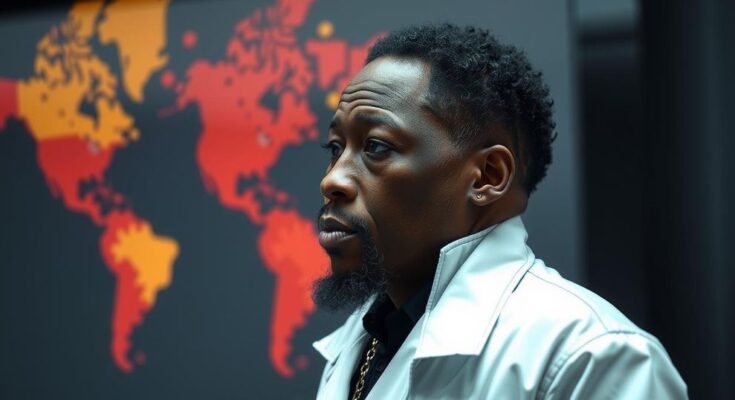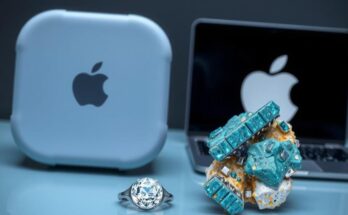The Democratic Republic of the Congo has accused Apple of using conflict minerals sourced from armed group-controlled regions. Legal complaints have been filed in France and Belgium, highlighting concerns about Apple’s complicity in human rights abuses and environmental damage. In response, Apple claims to enforce rigorous supply chain audits to avoid conflict minerals, while the DR Congo maintains that the minerals have fueled violence and exploitation.
The Democratic Republic of the Congo (DR Congo) has initiated criminal proceedings in both France and Belgium against subsidiaries of the technology company Apple. These legal actions stem from allegations that Apple is utilizing conflict minerals sourced from regions controlled by armed groups within eastern DR Congo. The Congolese government, represented by its legal team, asserts that Apple’s involvement exacerbates violent conflicts by financing militias and contributing to severe human rights violations, including forced child labor and significant environmental destruction.
In its 2023 analysis, Apple stated that it actively oversees its supply chain to mitigate risks related to conflict minerals while enhancing its capacity to trace the origins of these materials. The French and Belgian legal authorities are currently assessing the validity of the evidence presented to determine the feasibility of further legal action. According to the Congolese lawyers, Apple’s supply chain is tainted with what they term “blood minerals,” which are allegedly extracted from conflict zones and subsequently laundered through international networks.
Apple has not issued a comment in response to the requests made by the BBC but has highlighted its commitment to adhering to high standards in ensuring its supply chain is free of conflict minerals. The company has detailed that it does not directly procure primary minerals but is steadfast in implementing internationally accepted due diligence standards. In its 2023 submission to the U.S. Securities and Exchange Commission, Apple reported the removal of 14 smelters and refiners that failed to comply with responsible sourcing guidelines.
The eastern region of DR Congo is internationally recognized as a significant source of valuable minerals, and the persistent global demand for these resources has fueled armed violence in the area for many years. Various rights organizations have consistently alleged that both minerals from legitimate operations and those harvested by armed factions are trafficked to neighboring countries such as Rwanda, ultimately making their way into consumer electronics. The Rwandan government has previously dismissed the Congolese government’s accusations against Apple, labeling them as a media fabrication, while firmly denying any involvement in selling conflict minerals to Apple.
The issue of conflict minerals is significant in discussions revolving around human rights violations and environmental degradation in regions like the Democratic Republic of the Congo. As a major source of valuable minerals such as tantalum, tin, and tungsten, eastern DR Congo has been plagued by violent conflicts often fueled by the exploitation of these resources. Armed groups have leveraged the mining operations to perpetuate violence and fund their activities, making the global supply chain of these minerals a subject of scrutiny and concern. The allegations against Apple reflect ongoing tensions between corporate responsibility and the geopolitical complexities in mineral-rich areas.
In conclusion, the legal actions initiated by DR Congo against Apple underscore the serious ramifications associated with the global trade in conflict minerals. Allegations of complicity in financing violence and human rights abuses bring to light the importance of rigorous supply chain audits and responsibility among multinational corporations. As the situation develops, the outcomes of the legal assessments in France and Belgium may further influence the discourse surrounding corporate accountability and ethical sourcing practices in the technology sector.
Original Source: www.bbc.com




